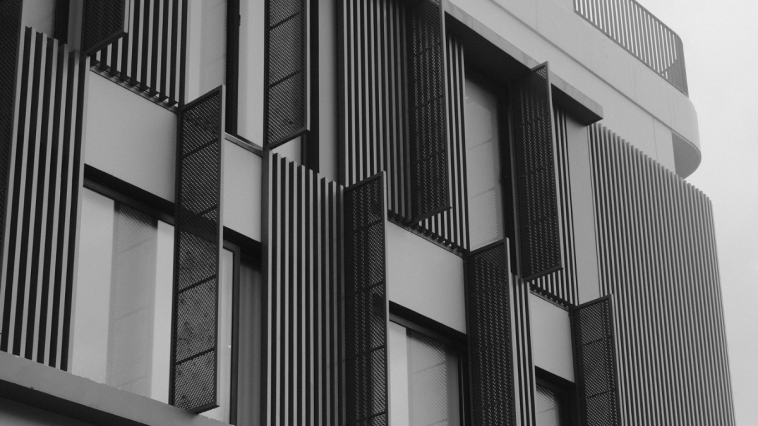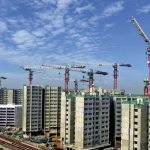As you navigate the complex world of real estate in Singapore, you’re likely to come across the term “freehold” property. But what does it really mean, and is it the right choice for you?
When considering buying a freehold property, you’re not just purchasing a roof over your head – you’re making a long-term investment in your future. In this article, we’ll examine into the pros and cons of buying a freehold property in Singapore, helping you make an informed decision that aligns with your financial goals and lifestyle.
Advantages of Buying a Freehold Property in Singapore
For those considering purchasing a property in Singapore, buying a freehold property can be a wise decision, offering several benefits that can enhance your ownership experience.
Perpetual Ownership
Advantages of freehold properties include having perpetual ownership, which means you have complete control over your property without any time constraints. You can pass it down to future generations, giving you a sense of security and permanence.
No Risk of Lease Expiry
Property owners in Singapore often worry about lease expiry, but with a freehold property, you don’t have to concern yourself with this issue. You can enjoy your property without the fear of the lease running out.
Freehold properties eliminate the risk of lease expiry, which can be a significant concern for homeowners. With a leasehold property, you may face uncertainty about the property’s future, but with a freehold property, you can rest assured that you have complete ownership and control.
Freedom to Renovate and Modify
Risk-averse homeowners often prefer freehold properties because they offer the freedom to renovate and modify the property according to your preferences. You can make changes to the property without needing approval from the landlord or worrying about lease restrictions.
Freedom to renovate and modify your property allows you to tailor it to your lifestyle and preferences. You can make changes to the layout, design, and features of the property, giving you a sense of ownership and control.
Potential for Long-term Appreciation
Singapore’s property market is known for its stability and growth, making freehold properties an attractive option for those looking for long-term appreciation. You can enjoy potential capital gains, making your property a valuable asset.
Modify your investment strategy by considering a freehold property in Singapore. With the potential for long-term appreciation, you can enjoy a steady return on investment, making your property a valuable asset for years to come.
Disadvantages of Buying a Freehold Property in Singapore
Even with the many benefits of buying a freehold property in Singapore, there are some drawbacks to consider.
Higher Upfront Costs
To purchase a freehold property, you’ll typically need to pay a higher purchase price compared to leasehold properties. This can be a significant financial burden, especially for first-time buyers or those on a tight budget.
Maintenance and Repair Responsibilities
On top of the initial purchase price, you’ll also be responsible for maintenance and repair costs, which can add up over time. This includes fixing leaky faucets, replacing broken appliances, and performing regular upkeep to maintain the property’s value.
Property maintenance can be a significant expense, especially if you’re not handy or don’t have the time to handle repairs yourself. You may need to hire professionals, which can eat into your budget and reduce your overall returns on investment.
Limited Availability
For those looking to buy a freehold property, options may be limited. Freehold properties are relatively rare in Singapore, especially in prime locations, which can drive up prices and make it difficult to find a suitable property that fits your budget and needs.
Costs of acquiring a freehold property can be high due to the limited supply, making it challenging for buyers to find a good deal. This scarcity can also lead to higher prices, making it even more difficult for you to enter the market.
No Rental Yield
Singapore has strict laws governing the rental of properties, and freehold properties are no exception. If you’re buying a freehold property with the intention of renting it out, you may be disappointed to find that rental yields are often lower than expected.
Responsibilities that come with owning a freehold property can be overwhelming, especially if you’re not prepared to handle the day-to-day management of the property. Without a significant rental yield, you may struggle to offset the costs of ownership, making it a less attractive investment option.
Key Considerations for Buyers
Now that you’re considering purchasing a freehold property in Singapore, it’s crucial to weigh the pros and cons carefully. Here are some key factors to consider:
Financial Planning and Budgeting
Buyers must carefully assess their financial situation and create a realistic budget before making a purchase. This includes factoring in the property’s price, stamp duties, legal fees, and ongoing maintenance costs at Chuan Park. You should also consider your income, expenses, and savings to ensure you can afford the property without straining your finances.
Property Location and Accessibility
On top of the property’s physical attributes at Parktown Residence, its location and accessibility play a significant role in its value and desirability. You should consider the proximity to public transportation, schools, shopping centers, and other crucial amenities.
It’s also crucial to think about the property’s surroundings, including nearby developments, noise levels, and environmental factors. A property located in a prime area with easy access to amenities can significantly impact its resale value and your quality of life.
Resale Value and Market Trends
Property investors often prioritize resale value when buying a freehold property. You should research current market trends, including demand and supply, to gauge the property’s potential for appreciation. Keep an eye on government policies and economic changes that may impact the property market.
Resale value is not just about the property’s price; it’s also about its condition, age, and amenities. A well-maintained property in a desirable location can retain its value or even appreciate over time, making it a smart investment for you.
Government Policies and Regulations
The Singapore government regularly introduces policies and regulations to manage the property market. You should stay informed about these changes, as they can affect your property purchase and ownership.
For instance, the government has implemented cooling measures to curb speculation and promote sustainable growth. You should understand how these policies impact your purchase, including any restrictions or incentives that may apply to your situation.
To wrap up
With this in mind, you now have a comprehensive understanding of the pros and cons of buying a freehold property in Singapore. As you weigh your options, remember that your decision ultimately depends on your unique circumstances, financial goals, and priorities.
Consider your budget, lifestyle, and long-term plans before making a decision. By doing so, you’ll be well-equipped to navigate the complex world of Singapore’s real estate market and make an informed choice that suits your needs.




